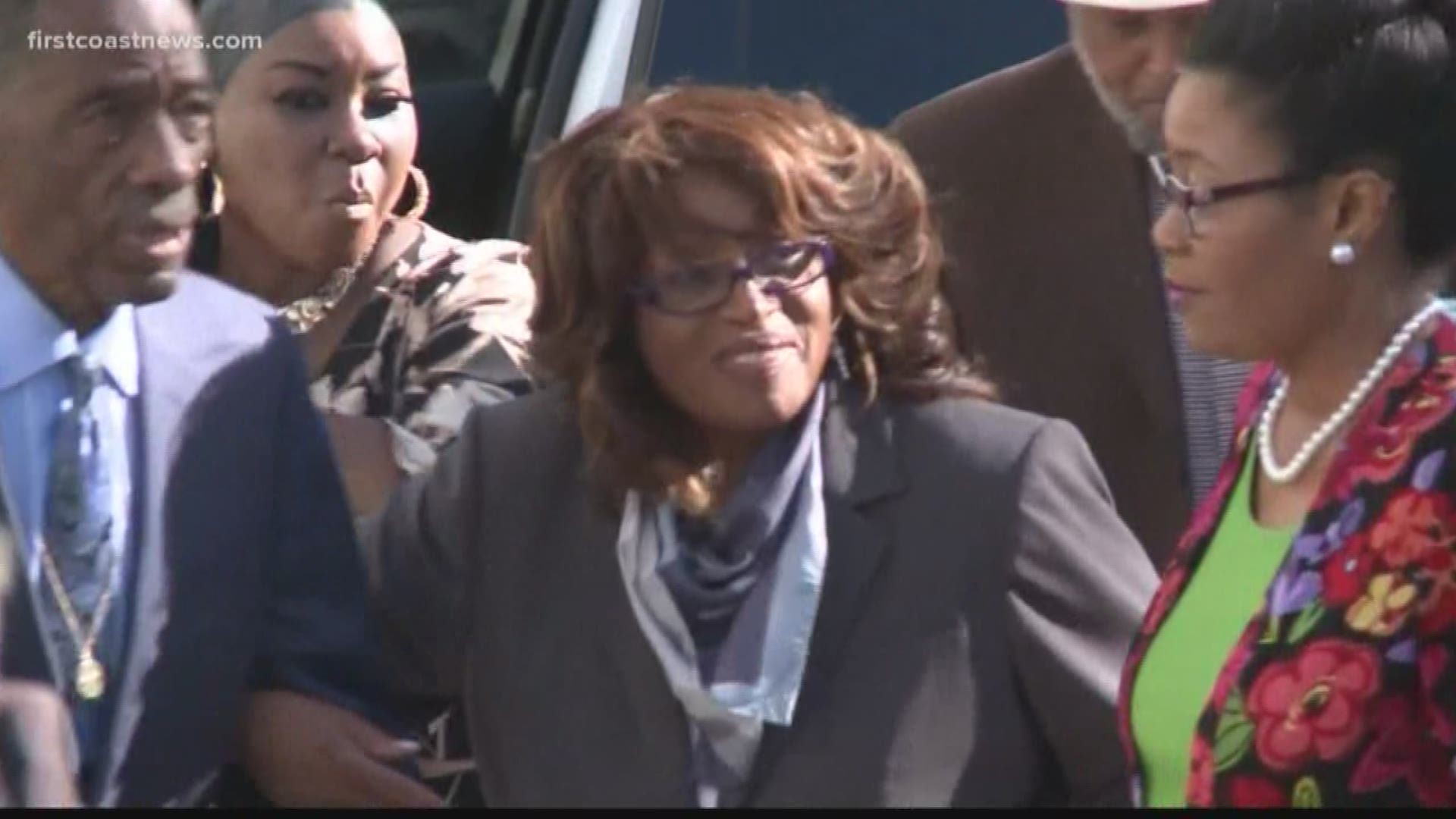Corrine Brown should remain in prison.
That’s the view of Federal Prosecutors who filed their official response to Brown’s appeal.
Brown was found guilty last May of 18 fraud and tax offenses.
Brown appealed, citing the removal of a juror in her case, who said he’d been told by the Holy Spirit that she was innocent. Juror 13’s behavior was reported by a concerned juror and unlocked the seemingly stalled jury deliberations. Brown was found guilty 8 hours later.
In a 62-page response, federal prosecutors say her conviction was sound and should be upheld.
They acknowledged the circumstance is a strange one. The high court “has never addressed a factual situation like this one,” Assistant U.S. Attorney David Rhodes said in the document. But he observed the court “has upheld the district court’s exercise of its discretion to remove a juror during deliberations every time it has faced the issue, save one.”
The only time appeals court judges shot down a district judge’s decision to remove of a juror was in a case when a juror was removed following her bad reaction to medication – something the appeals court thought should have been resolved another way.
Rhodes argues that a juror “need not engage in deliberate misconduct to be removed.” Rather his inability to follow court instructions – i.e. disregarding the court’s instruction to put aside outside influences, like the Holy Spirit – “violated the court’s instructions” and therefore was justifiably removed.
Prosecutors accuse Brown’s attorney of portraying the juror removal as a matter of religious freedom.
“Brown attempts to recast the issue – the facts really – by repeatedly asking whether the district court may remove a juror for “having prayed for guidance” or base on his “personal prayer life,” Rhodes writes. “But that’s not what the district court did, nor for that matter is it what Juror No. 13 did.”
Rhodes notes that U.S. District Court Judge Timothy Corrigan made clear his decision to remove the juror was not based on his religious views but on his inability to fairly consider the evidence and apply the law.
“This was not a case of a juror looking inward for guidance; this was a case of a juror who by his own admission, received information as to what to do and was told by the Holy Spirit what to do: find Brown not guilty on all 24 charges, and before deliberations had even begun.”
Prosecutors also urged the appeals court to dismiss out of hand Brown’s claim that Corrigan violated federal rules of evidence when he chose to interview the juror’s “mental processes.” Rhodes notes that Brown’s attorney never raised that objection in court – he, in fact, offered suggestions about how to handle the juror interview – nor in their motion for a new trial. “Simply put,” Rhodes concludes, “jurors may be removed if their religious faith precludes them from performing the duties of a juror.”

